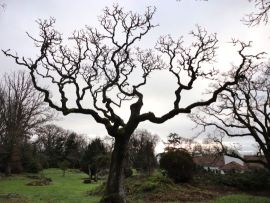“What Is Awareness?” Retreat
What Is Awareness? June 10 – 12, 2016 Ashwani Kumar, Associate Professor at Mount Saint Vincent University in Halifax, joined us for the third year running to present a weekend workshop entitled “What Is Awareness?” A small group of seven were present for the event beginning on Friday evening. Ashwani immediately stated that his style for this gathering would not involve lecturing and concepts but, rather, would be an invitation to enter directly into significant questions without prior knowledge or conclusions. He gave time for group members to get in touch with a question of fundamental importance in our lives and to then share it with the group in a process of exploration without looking for an immediate answer. It is the process of investigation and what can be seen through it that is important, not an intellectual answer or conclusion. After sharing our questions, Ashwani asked us to consider what is the state of mind out of which the question is arising. Are we seeking something we think or feel we don’t have? Can we stay with that feeling rather than doing something to change it or get away from it? Have we ever been in touch with the raw feeling without naming it or explaining it? Ashwani was very adept at keeping us focused on this type of inquiry and was continuously reminding us to go into the actual experience and sensations in the body and not to resort to the intellect for solutions to our existential issues. The rest of the retreat was a further exploration into the type of inquiry introduced on the first evening. Integrated into the program were some body-centred meditations and relaxation exercises, including energetic dance and gibberish. An interesting writing exercise and a nature walk were also valuable aspects of the retreat. On Sunday afternoon a video was shown of Krishnamurti speaking with a group in California in March, 1970. In the discussion, entitled “What Does Awareness Mean?”, K delves into the issue of harmony in living. The intellect is given far too much importance in our lives, causing an imbalance and conflict within ourselves. K suggested that awareness can bring harmony between all the parts of the human being. In fact, awareness is harmony. There must be a pure looking with any effort or intrusion of the intellect. This means a looking without an image of what is seen. The combination of inquiry and experiential meditations was a powerful approach to bringing us to an actual direct knowing of awareness in our lives. The effects no doubt varied for each individual, but the willingness of the participants to enter into the experiments must have brought benefits to all. We were grateful to have Dr. Kumar with us once again.



